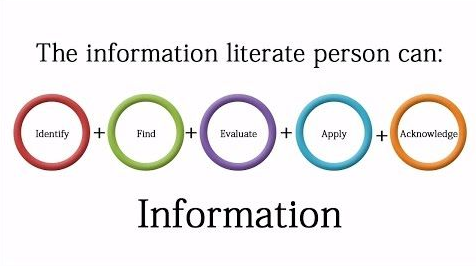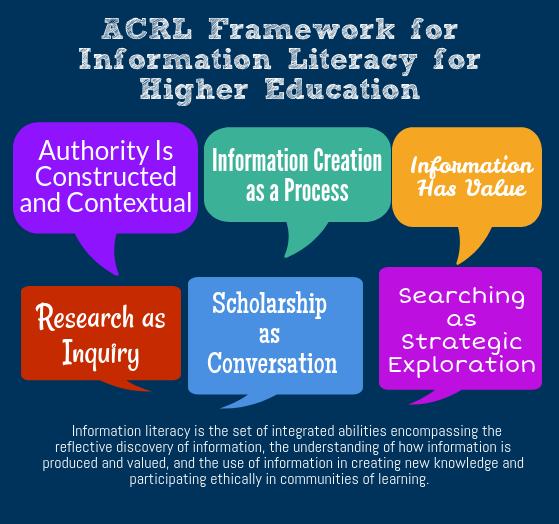Information Literacy
As information literacy experts, librarians are ready to work with faculty on how to best incorporate information literacy into their curriculum. We can be valuable partners to work with faculty on how to effectively incorporate information literacy into your curriculum in a way that works for best for you and your students and leverages available library resources.
What is Information Literacy?
The American Library Association defines information literacy as:
"The set of abilities encompassing the reflective discovery of information, the understanding of how information is produced and valued, and the use of information in creating new knowledge and participating ethically in communities of learning."
Information literacy is more relevant than ever in today's era of "fake news" and "post-truth." Students need to be able to successfully discover, understand and interpret credible, authoritative and accurate sources of information both for their profession and personal well-being and development.

The American College & Research Libraries Information Literacy Framework
The Framework for Information Literacy for Higher Education is organized into six frames, each outlining a concept central to information literacy: "at the heart of this Framework are conceptual understandings that organize many other concepts and ideas about information, research, and scholarship into a coherent whole." (ACRL).
The 6 Frames
 1. Authority is Constructed and Contextual
1. Authority is Constructed and Contextual
Information resources reflect their creators’ expertise and credibility, and are evaluated based on the information need and the context in which the information will be used. Authority is constructed in that various communities may recognize different types of authority. It is contextual in that the information need may help to determine the level of authority required.
2. Information Creation as a Process
Information in any format is produced to convey a message and is shared via a selected delivery method. The iterative processes of researching, creating, revising, and disseminating information vary, and the resulting product reflects these differences.
3. Information has Value
Information possesses several dimensions of value, including as a commodity, as a means of education, as a means to influence, and as a means of negotiating and understanding the world. Legal and socioeconomic interests influence information production and dissemination.
4. Research as Inquiry
Research is iterative and depends upon asking increasingly complex or new questions whose answers in turn develop additional questions or lines of inquiry in any field.
5. Scholarship as Conversation
Communities of scholars, researchers, or professionals engage in sustained discourse with new insights and discoveries occurring over time as a result of varied perspectives and interpretations.
6. Searching as a Strategic Exploration
Searching for information is often nonlinear and iterative, requiring the evaluation of a range of information sources and the mental flexibility to pursue alternate avenues as new understanding develops.
